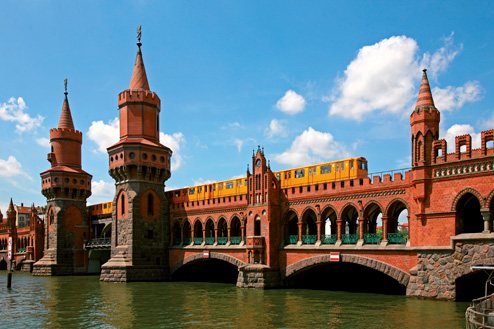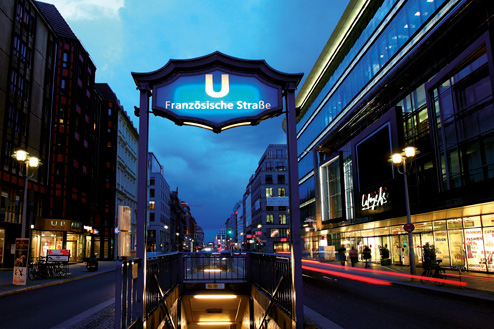Language
The local version of German is known as Berlinerisch and is a regional accent with vernacular lingo rather than a real dialect. Unlike the often impenetrable forms of German spoken in Bavaria or Saxony, familiarity with the common changes in pronunciation and a few key phrases will be enough to understand even the thickest Berlin accents. The most obvious difference is that Berliners change initial hard Gs to German Js, which are similar to the Y in English. This means a word like gut (good) becomes jut and the pronunciation switches from ‘goot’ to ‘yoot’.
But local Berlin peculiarities aside, even proper German can be intimidating at first. The language has three genders for definite articles, four cases, split verbs and a syntax allowing a seemingly limitless number of clauses in a single sentence. However, once you know the basic rules and grammar, German does not have as many exceptions to deal with as other European languages. Unfortunately, a major linguistic reform in the 1990s meant modernising the tongue of Goethe ended up annoying and confusing many of the country’s leading grammar experts. Some of the new spelling rules – such as allowing triple consonants in words such as Schifffahrt (shipping) – are generally considered so ridiculous that several leading German newspapers have led a linguistic revolt by returning to the old spellings.
But local Berlin peculiarities aside, even proper German can be intimidating at first. The language has three genders for definite articles, four cases, split verbs and a syntax allowing a seemingly limitless number of clauses in a single sentence. However, once you know the basic rules and grammar, German does not have as many exceptions to deal with as other European languages. Unfortunately, a major linguistic reform in the 1990s meant modernising the tongue of Goethe ended up annoying and confusing many of the country’s leading grammar experts. Some of the new spelling rules – such as allowing triple consonants in words such as Schifffahrt (shipping) – are generally considered so ridiculous that several leading German newspapers have led a linguistic revolt by returning to the old spellings.













